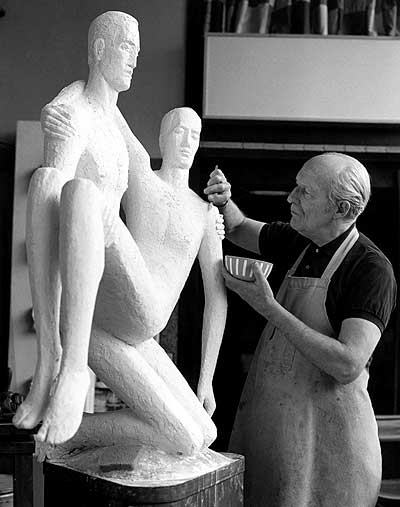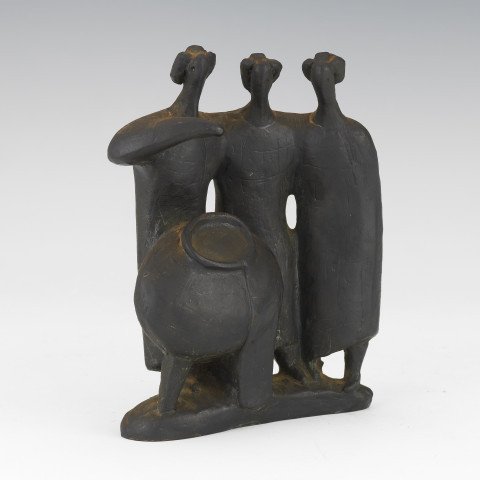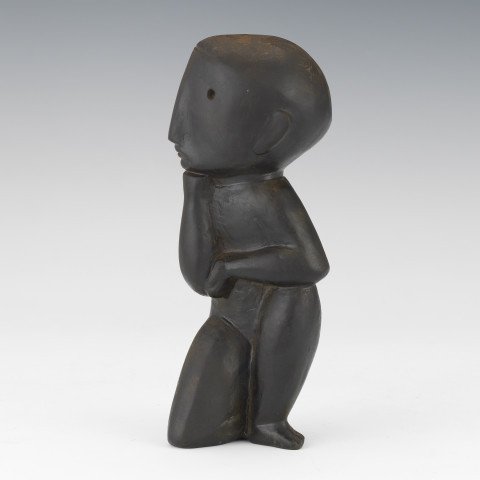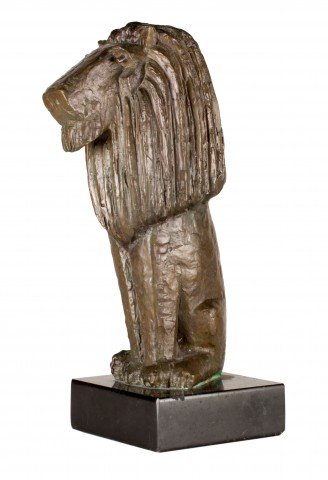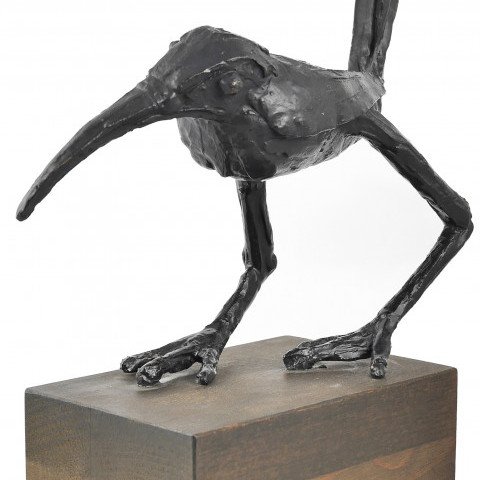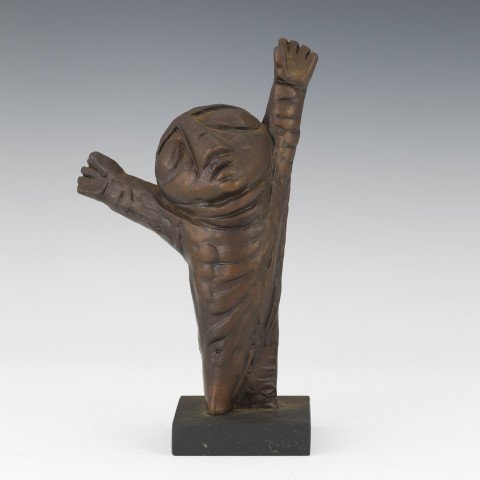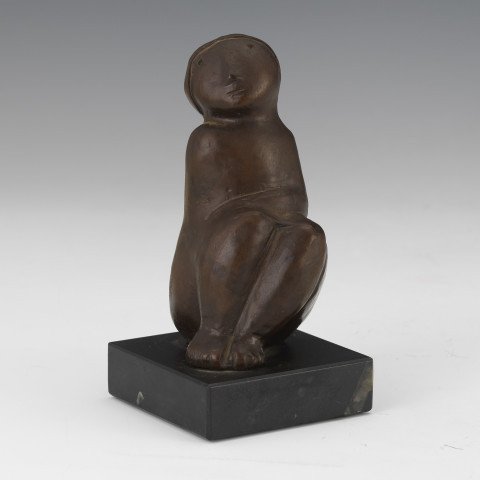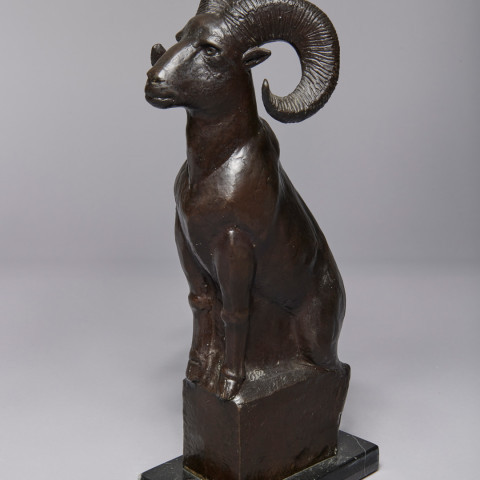William McVey (12 July 1905-31 May 1995) became Cleveland's most visible artist largely through his numerous local commissions for public sculpture. He was born in Boston, Massachusetts, the son of Silas and Cornelia Mozart McVey, who brought him to Cleveland in 1919. Graduating from Shaw High School in 1922, he studied architecture at Rice Institute in Texas before returning to graduate from the Cleveland School of Art in 1928. He furthered his studies for two years in Paris, where he was a pupil of Charles Despiau and attended the Colarossi and Scandinave academies. In 1932 he returned to Cleveland and married Leza Marie Sullivan. Working for the New Deal art projects, he sculpted a grizzly bear now at the Cleveland Museum of Natural History and a bas-relief of Paul Bunyan for the community center at Lakeview Terrace. His allegorical statue of "Dawn" was a centerpiece of the horticultural gardens at the Great Lakes Exposition. During the late 1930s, while teaching in Texas, he executed monuments to Jim Bowie and Davy Crockett and a stone frieze at the base of the San Jacinto Monument near Houston. After service in the Army Air Force during World War II and postwar teaching in Michigan, McVey returned to Cleveland as head of the sculpture department at CIA from 1953-67. He subsequently worked as a full-time sculptor in his studio in Pepper Pike. Local commissions in his later period included bronzes of George Washington at the Anthony J. Celebrezze Federal Building, Jesse Owens at Huntington Park, Archbishop John Carroll at John Carroll University, Hart Crane and Tom L. Johnson at Case Western Reserve University, and a 7 foot-high B clef at Blossom Music Center. In Washington, D.C, he is represented by bronze doors in the Federal Trade Commission Building, five stone statues in the National Cathedral, and, possibly his masterpiece, the 9 foot heroic bronze of Winston Churchill standing outside the British Embassy with one foot within British jurisdiction and the other on American soil. He died in Chardon, Ohio, leaving no survivors.
